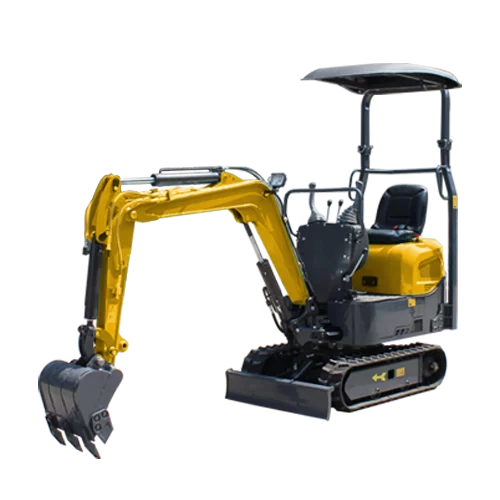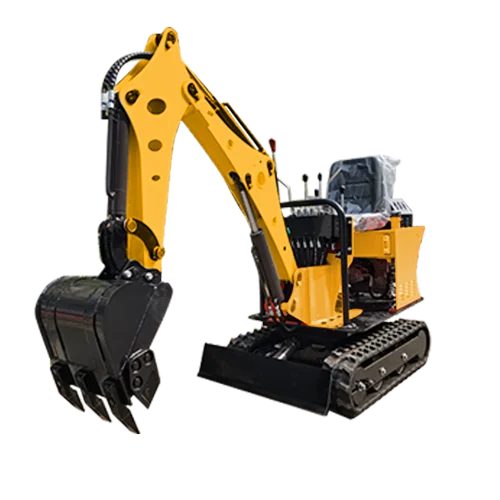Introduction

In the ever-evolving construction industry, the demand for versatile and efficient machinery is higher than ever. Compact excavators have emerged as a game-changer for contractors working on tight job sites. Their size, maneuverability, and powerful performance make them the go-to choice for urban and confined spaces. This blog will explore how compact excavator enhance efficiency on tight job sites, highlighting their advantages, applications, and best practices.
The Rise of Compact Excavators
Historical Context
Compact excavators have evolved significantly over the past few decades. Initially designed for small-scale landscaping projects, these machines have gained popularity in various construction sectors. Their development has been driven by the need for equipment that can operate in limited spaces without compromising power or performance.
The Compact Excavator Defined
A compact excavator is typically characterized by its small footprint, usually weighing between 1 to 10 tons. Despite their size, these excavators come equipped with powerful engines and advanced hydraulic systems, allowing them to perform a wide range of tasks efficiently.
Advantages of Compact Excavators
Maneuverability
Compact excavators are designed for agility. Their small size enables operators to navigate tight spaces easily, making them ideal for urban environments or confined job sites. Whether it’s working between buildings or accessing narrow alleyways, these machines excel in situations where larger equipment simply cannot fit.
Versatility
One of the most significant benefits of compact excavator is their versatility. They can be equipped with various attachments, such as buckets, augers, and grapples, allowing them to perform different tasks, from digging and trenching to demolition and landscaping. This adaptability helps contractors maximize their investment and minimize downtime.
Reduced Ground Pressure
The design of compact excavator often features wider tracks or tires, which helps distribute their weight more evenly across the ground. This characteristic reduces ground pressure, minimizing soil compaction and damage to existing landscapes, making them perfect for sensitive job sites.
Increased Productivity
Thanks to their powerful hydraulic systems, compact excavator can deliver high performance in terms of lifting, digging, and transporting materials. This efficiency translates into increased productivity on the job site, enabling contractors to complete tasks faster and more effectively.
Cost-Effectiveness
Investing in compact excavators can be financially advantageous. Their lower purchase price and operational costs compared to larger machines make them an attractive option for small to mid-sized contractors. Additionally, their efficiency often leads to reduced labor costs and improved project timelines.
Enhanced Safety Features
Compact excavators come equipped with modern safety features such as rollover protective structures (ROPS) and enhanced visibility, which contribute to a safer working environment. Operators can work with peace of mind, knowing they are using machines designed with safety in mind.
Applications of Compact Excavators
Landscaping
In landscaping projects, compact excavators are invaluable. They can dig holes for planting trees, install drainage systems, and remove unwanted soil or debris. Their size allows them to work in residential backyards without disturbing the surrounding area.
Utility Installation
Compact excavator play a crucial role in utility installation. Whether installing sewer lines, water pipes, or electrical conduits, these machines can navigate tight utility corridors, ensuring minimal disruption to the surrounding environment.
Site Preparation
Before construction begins, site preparation is essential. Compact excavator can level ground, remove vegetation, and create necessary grading with precision, setting the stage for successful building projects.
Demolition
Compact excavator equipped with demolition attachments are effective for small-scale demolition projects. Their ability to operate in confined spaces makes them ideal for demolishing structures in urban areas without risking damage to neighboring buildings.
Agricultural Use
Compact excavators are increasingly being utilized in agriculture for tasks such as digging irrigation ditches, planting crops, and maintaining farmland. Their ability to navigate narrow rows and tight spaces makes them a valuable asset for farmers.
Residential Construction
In residential construction, compact excavator facilitate various tasks, from foundation digging to site cleanup. Their compact design allows them to work efficiently on projects where space is limited.
Performance Comparison Table
| Feature | Compact Excavators | Standard Excavators |
|---|---|---|
| Weight Range | 1-10 tons | 10+ tons |
| Maneuverability | High | Moderate |
| Ground Pressure | Low | High |
| Versatility of Attachments | Extensive | Limited |
| Typical Applications | Tight spaces | Open areas |
| Cost (Purchase/Operation) | Lower | Higher |
| Safety Features | Advanced | Varies |
Best Practices for Using Compact Excavators
Proper Training
To ensure maximum efficiency and safety, operators should undergo thorough training on using compact excavator. Understanding the machine’s features and capabilities can significantly enhance performance on the job site.
Regular Maintenance
Maintaining compact excavators is essential for longevity and reliability. Regularly inspecting and servicing the equipment helps prevent breakdowns and ensures optimal performance throughout the project.
Choosing the Right Attachments
Selecting the appropriate attachments for specific tasks can enhance the efficiency of compact excavators. Contractors should assess their project needs and invest in attachments that will maximize productivity.
Planning Job Sites
Before commencing work, planning the layout of the job site can help optimize the use of compact excavator. Strategically positioning materials and equipment reduces movement and increases efficiency.
Safety Protocols

Implementing safety protocols is crucial when operating compact excavator. Ensuring all personnel on-site are aware of safety procedures can minimize accidents and create a safer working environment.
Conclusion
Compact excavators are indispensable tools for contractors working on tight job sites. Their maneuverability, versatility, and efficiency make them a preferred choice across various applications, from landscaping to utility installation. By understanding the advantages of compact excavators and employing best practices, contractors can enhance productivity, reduce costs, and maintain a safe work environment. As the demand for efficient construction solutions continues to grow, compact excavator will undoubtedly remain at the forefront of the industry.
FAQ
Q:What is the typical weight range of compact excavator?
A:Compact excavator generally weigh between 1 to 10 tons, making them suitable for tight job sites.
Q:How do compact excavator compare in cost to standard excavators?
A:Compact excavator tend to have a lower purchase and operational cost compared to standard excavators, making them more accessible for small contractors.
Q:Can compact excavators be used for demolition?
A:Yes, compact excavators are highly effective for small-scale demolition tasks, especially in urban settings where space is limited.
Q:What are some common attachments used with compact excavators?
A:Common attachments include buckets, augers, grapples, and hydraulic hammers, which enhance the versatility of compact excavators.
Q:How important is operator training for compact excavators?
A:Proper training is essential for maximizing efficiency and safety when operating compact excavators on job sites.
Q:Are compact excavators suitable for agricultural use?
A:Yes, compact excavators are increasingly used in agricultural applications, including digging irrigation ditches and maintaining farmland.
Q:What maintenance practices are recommended for compact excavators?
A:Regular inspections, servicing, and adherence to manufacturer guidelines are crucial for maintaining compact excavators and ensuring their reliability.
